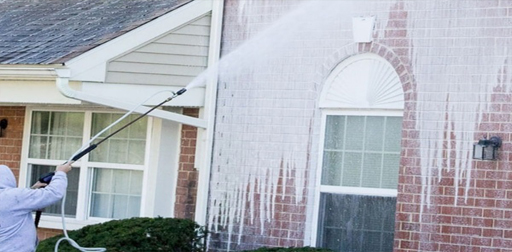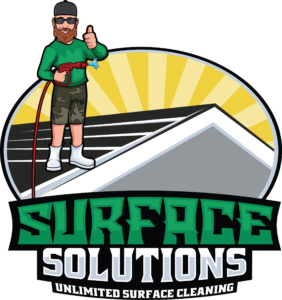
Traditional pressure washing expels high-powered water streams sometimes accompanied by chemical cleaning agents. Its purpose is to blast through set-in stains and buildups on hard, durable surfaces.
Soft washing instead relies on mild water spray that goes through a low-pressure nozzle piece and exits through a pressure washing wand device. It uses eco-friendly chemicals to dissolve grime and surface stains, and it’s preferred for more delicate exteriors because it won’t cause damage to them from too-high water pressure or too-harsh chemicals.
Do They Both Use Chemicals?
Yes, it’s common for both methods to utilize biodegradable chemical cleaners in the cleaning process to ensure the swift sanitization of living organisms like mold, algae, moss, and bacteria. These detergents help guarantee that the cleaning leaves no mold or algae spores behind on your exteriors, and ensures that these toxins won’t redevelop so easily.
What Is Soft Washing Used For?
Soft washing is a highly effective cleaning method with numerous uses. Its mild application makes it ideal for most residential cleaning jobs like roof washing, house washing, window cleaning, and more. It doesn’t cause cracks, dents, tears, or punctures, but it also doesn’t sacrifice cleaning effectiveness.
What Is Power Washing Used For?
Traditional power washing should be reserved for highly durable surfaces like rock and concrete. When these surfaces have deeply embedded dirt and stains, they’ll likely require more than just mild wash, which is where power washing’s high pressure proves useful.
